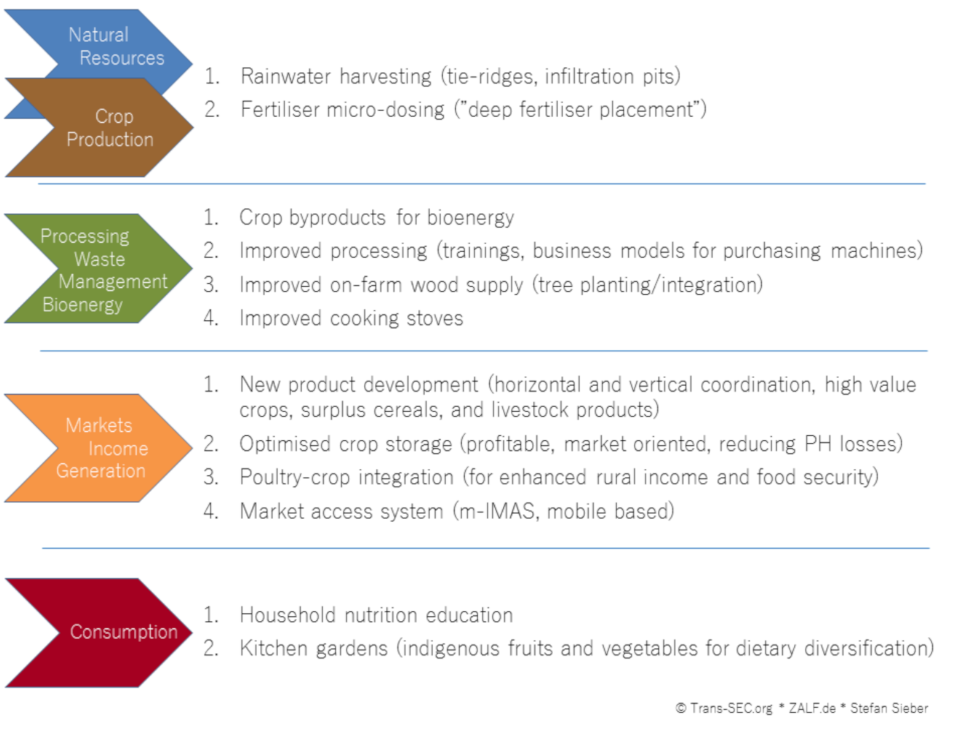Trans-SEC
Trans-SEC - Innovating Strategies to safeguard Food Security using Technology and Knowledge Transfer: A people-centred Approach Start 1st of May 2013
Trans-SEC was supported by the funding initiative "Securing the Global Food Supply – GlobE" and embedded in the framework program "National Research Strategy BioEconomy 2030". The project period was planned for five years with a total budget of 7,5 Mio Euro. Seven German research institutes, two CGIAR research centres from Kenya and USA as well as five Tanzanian institutes were involved in Trans-SEC. Approximately 90 scientists and non-governmental professionals contributed to innovate strategies to safeguard food security through the use of science, technology and knowledge transfer. The specific objective of Trans-SEC was to improve the food situation for the most-vulnerable rural poor population in Tanzania. It was designed to identify successful food securing upgrading strategies along local and regional food value chains, test and adjust them to site-specific, sustainable settings and tailor these concepts to be disseminated for national outreach. During and after the project lifetime, the results are being implemented at different levels of policy, extension and research.

Trans-SEC had the following unique characteristics:
- An integrated holistic food value chain approach involving the different sectors.
- Use of existing local and regional knowledge, for instance on resource conservation, food production, processing and markets/society ("not to re-invent the wheel").
- The level of participation was extraordinarily high, since all relevant key stakeholders along the food value chains were involved. ("South-South and North-South learning is critical for success").
- Trans-SEC applied action research, which allows for subsequent effective implementation. ("testing implementation capability is the key for success in practice").
- We ensured future implementation by integrating impact assessments and reasons for success and failure ("Liebig’s law of minimum constraints").
- Three world-wide well-known models (PIK: SWIM, LPJmL; IFPRI: IMPACT) were used to analyse Tanzanian hot spots for present and potential food insecurity.
- Dissemination strategies and up-scaling practices to cover large parts of Tanzania and guarantee high spatial impact ("Use efficiency potentials for maximum outreach"
The research activities were embedded into local and regional strategies to assess potential impacts and trade-offs and to be able to up-scale the lessons learnt to other Tanzanian regions. Trans-SEC targeted the entire food value chain consisting of six main components (natural resources, food production, processing, waste management, markets and consumption). A joint stakeholder and scientist driven decision process was set up to determine upgrading strategies most promising for further testing. This participative process took 15 months in total. It resulted in 13 upgrading strategies determined for practical testing in four case study sites across sub-humid and semi-arid Tanzanian regions.



